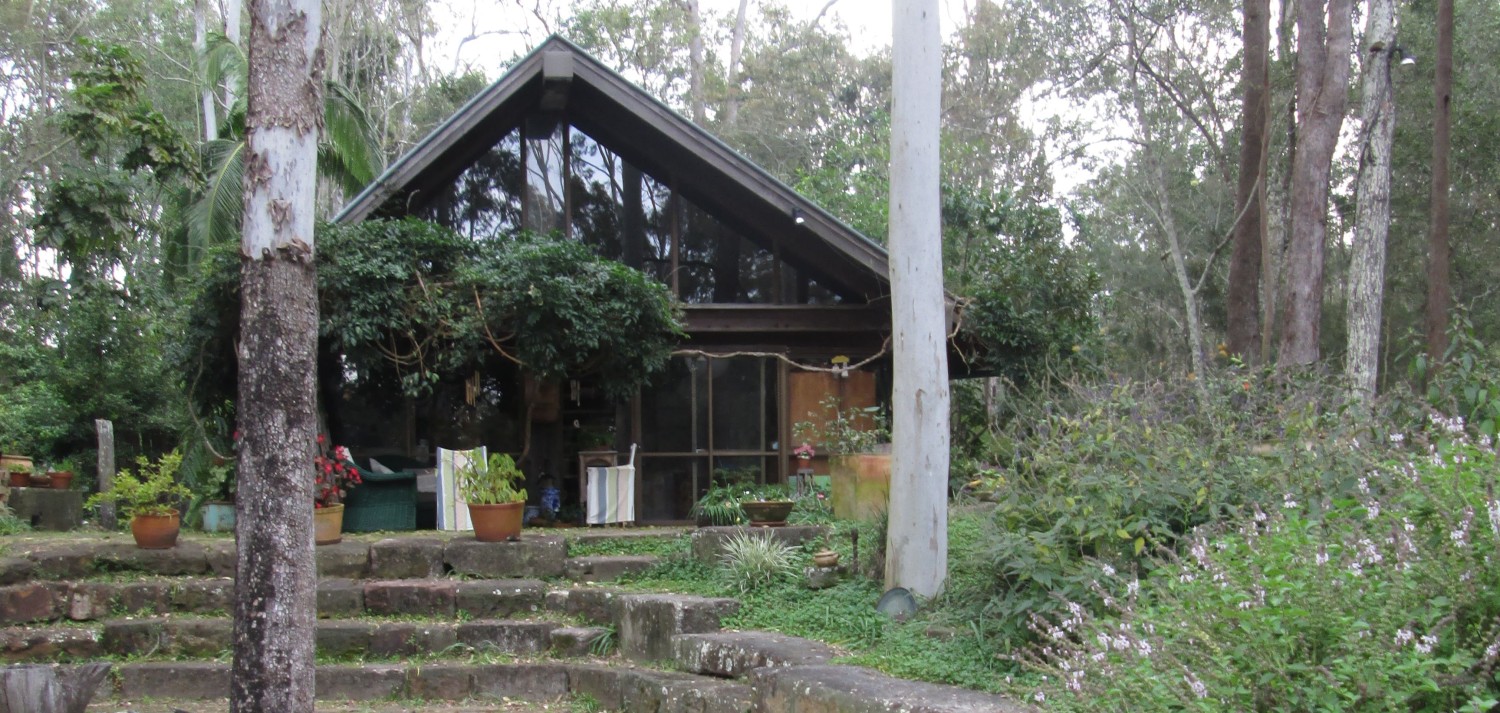1. The Bus Overall:
See this website: Sahara Adventures | Wiki Australia
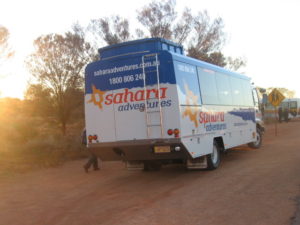
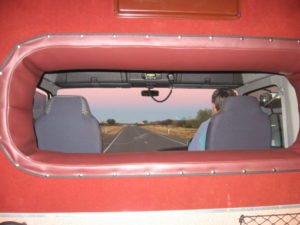
The bus we travelled in from Alice Springs …..
_____________________________________________________________
Below in a few photos and a few words, are some of the things we saw and experienced ….
_____________________________________________________________
Our Itinerary:
Harriet (my wife) and I flew off to the Northern Territory from 1st-13th June for a short holiday whereby we:
- Flew up to Darwin from Brisbane on the 1st June then hired a camper van
- Then we went down to Kakadu National Park for four days … a Park of rivers, floodplains, cliffs and Aboriginal rock art etc. over hundreds of square kms.
- Then we drove back to Darwin
- Then we caught the train = the Ghan down to Alice Springs (1000 kms. +) which is in Central Australia
- We stopped off before Alice Springs on the way down, for four hours to visit by boat the Katherine Gorge
- Then we went on a small bus tour to Ayres Rock for several days … Ayres Rock is 500 kms. south of Alice Springs ….one day to get down there, three days camping out and half a day to get back
- Then we flew back to Brisbane by the 13th June ….. Alice Springs to Sydney then onto Brisbane
________________________________________________________________
Some of the countryside we initially saw and experienced on leaving Alice Springs to Ayres Rock (Uluru) …. 500 kms. south of Alice Springs …. one day to get down there, three days camping out and half a day to get back.
There were only about thirteen people on the bus ….. so it was a small friendly group of people. Of interest there were two tourists all the way from Germany. In talking with them, I asked them out of curiosity as to why they would come all the way from Germany to go to Ayers Rock. They replied by saying that they wanted to see what Germany was like hundreds of years ago before industrialization. When you look at: Images for germany, you see much history in some of the buildings or lots green agriculture. It isn’t desert as in going to Ayers Rock.
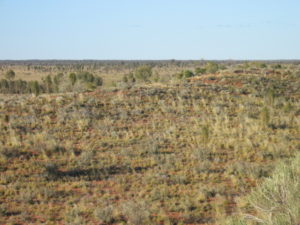
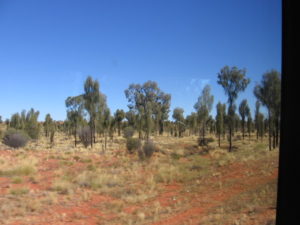
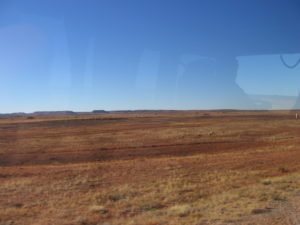
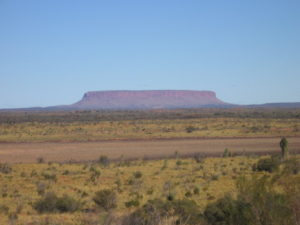
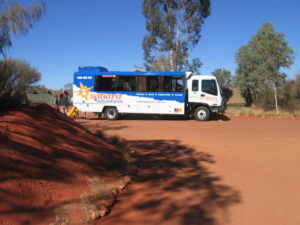
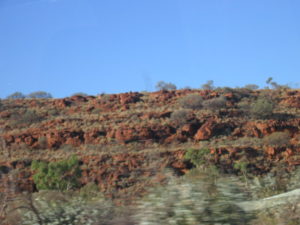
_________________________________________________________
2. Camel Farm:
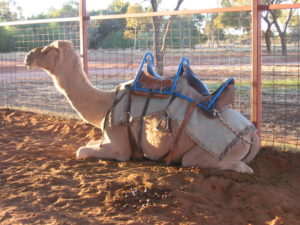
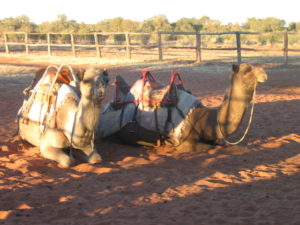
There are about 750,000 roaming wild in the outback and they cause a host of problems. Camels were imported to Australia in the 19th century from Arabia, India and Afghanistan for transport and heavy work in the outback.
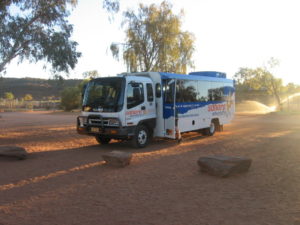
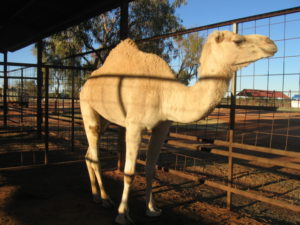
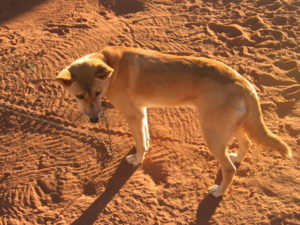
Dingo tamed and on a chain ….. See more images of Dingoes at this website
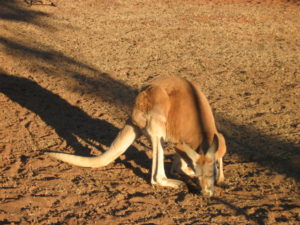
Kangaroo eating some grass ….
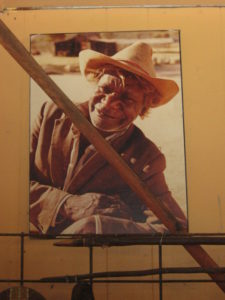
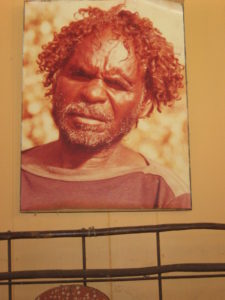
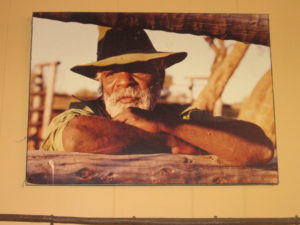
Pictures of an aboriginal workers on the farm …..
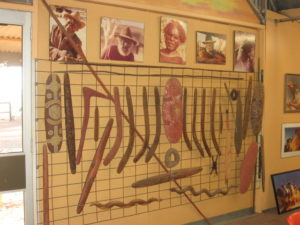
Photos of the Aboriginal workers on the farm and a demonstration of Aboriginal artifacts …..
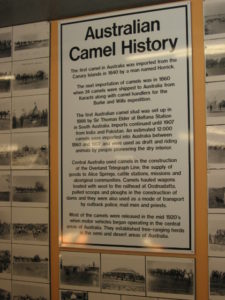
Central Australia used camels in the construction of the Overland Telegraph Line, the supply of goods to Alice Springs, cattle stations, missions and Aboriginal communities. Camels hauled wagons loaded with wool to the rail head at Oonadatta, pulled scoops and ploughs in the construction of dams and they were used as mode of transport by the outback police, mailmen and priests.
Most of the camels were released in the mid 1920’s when motor vehicles began operating in the central areas of Australia. They established free ranging herds in the semi arid deserts of Australia. As was said above: There are about 750,000 roaming wild in the outback and they cause a host of problems.
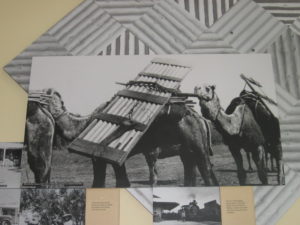
Camels in the supplying of goods to Alice Springs, cattle stations, missions ……
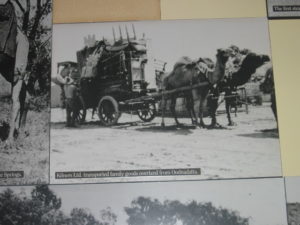
Camels hauled wagons loaded with wool to the rail head at Oonadatta …..
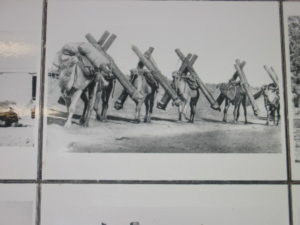
Camels being used in the construction of the Overland Telegraph Line in Central Australia ……
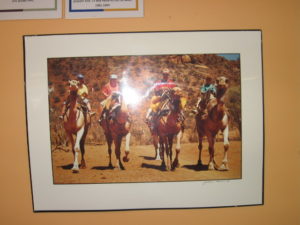
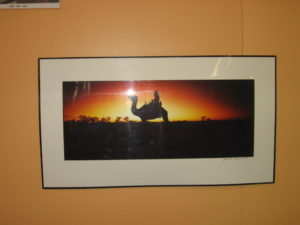
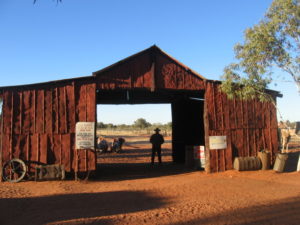
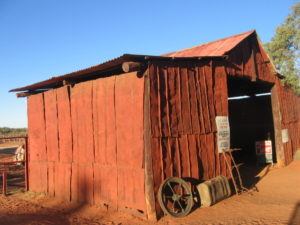
An old shed built of rusty red iron …..
_________________________________________________________
3. Mt. Ebenezer:
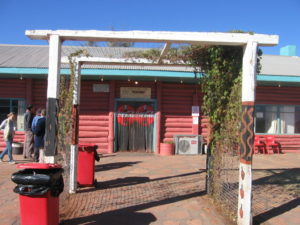
The Imanpa Gallery is situated at the Mount Ebenezer Roadhouse in the Northern Territory and owned by the nearby Imanpa Aboriginal Community. It is on the Lasseter Highway, some sixty kilometres west of Erldunda, on the way to Uluru (Ayers Rock). The traditional art and wood carving work, unique to this area of Australia, is produced by members of the community and, being retailed through the Gallery, forms a substantial part of their livelihood. We are members of DESART, an umbrella organisation linking and servicing many Central Australian Aboriginal art centres.
Inside the Gallery with the natural red earth floor …..
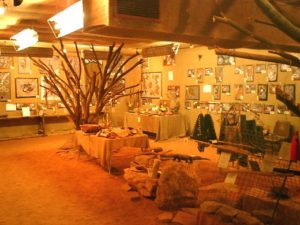
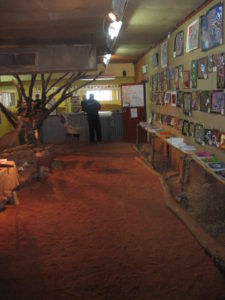
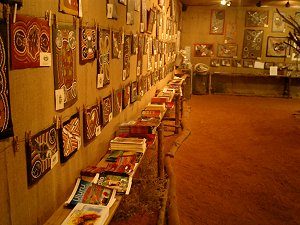
OTHER PRODUCTS IN THE GALLERY: In addition to paintings, the Gallery houses a large collection of locally made wooden artifacts of fine quality and also has a range of magazines and books about Aboriginal art.
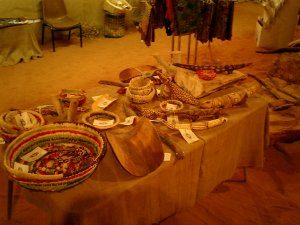
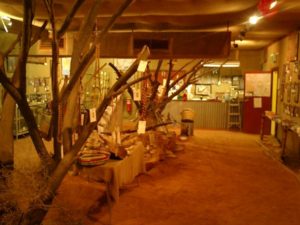
Aboriginal artifacts for sale … Paintings adorn the walls and wooden artifacts are displayed in the centre of the room. The whole space, with its warm colours and deep red-earth floor, gives a uniquely Centralian feel.
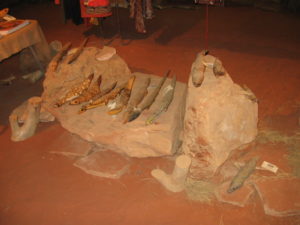
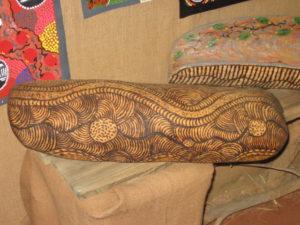
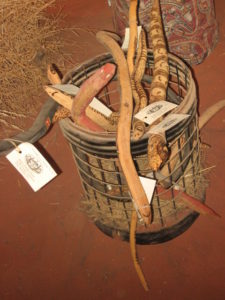
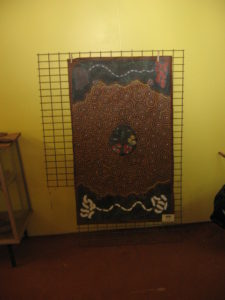
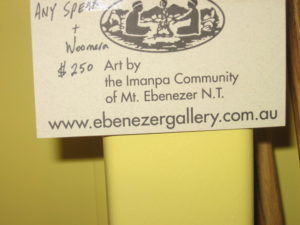
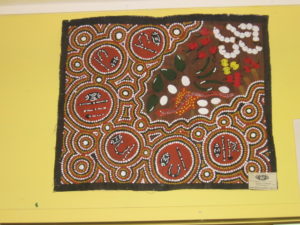
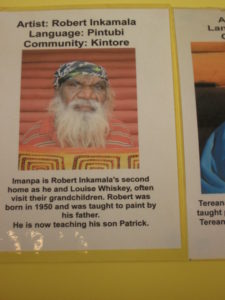
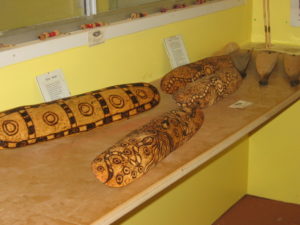
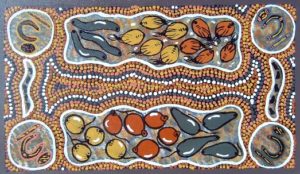
FOUR WOMEN WITH BUSH FOOD by KATHLEEN PUMPJACK …..
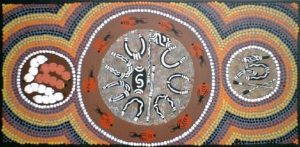
…. The Seven Sisters by Phyllis Bulla …. From: www.ebenezergallery.com.au ……
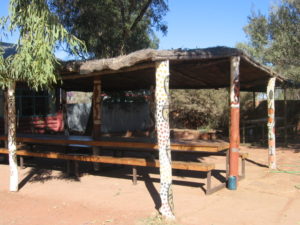
Shelter made from bush logs and a roof of native grasses and in wire netting …..
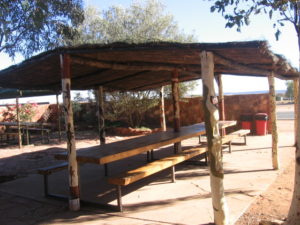
_________________________________________________________
4. Curtin Springs Roadhouse:
Curtin Springs has been home to the Severin family since 1956, when Peter Severin arrived with his young wife Dawn, their toddler son Ashley and 1,500 head of cattle. At Curtin Springs we balance beef production with being a million acre wildlife corridor, and offer many ways for visitors to connect with the spectacular landscape. Our hearts are deeply connected to this remote part of Australia and we invite you to take a ‘peek behind the curtain’ to explore the wonders of our home. Located just 100km east of Ayers Rock or 360km south west of Alice Springs, Curtin Springs offers a perfect base from which to visit the Ayers Rock and Kings Canyon areas. Or stay a while longer and ‘peel back the layers’ by including our experiences, tours and hospitality in your travel plans.
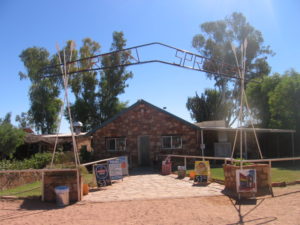
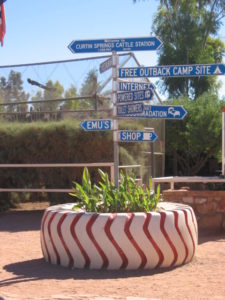
_________________________________________________________
6. The Camp:
Each night we would camp in a new location which was already setup for camping at a specific location. Communal tents were already setup, each with two stretchers and a 50 mm thick mattress and a sleeping bag. There would a communal fire area and a communal dining area as illustrated below. Food, plates and cutlery would be provided by the bus driver. After eating, we would wash up our used plates and cutlery.
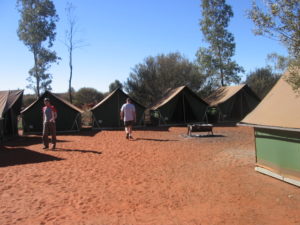
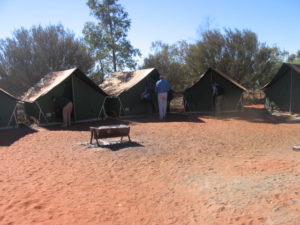
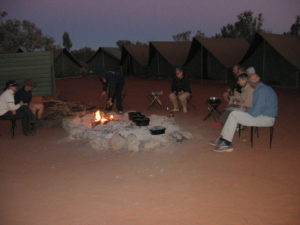
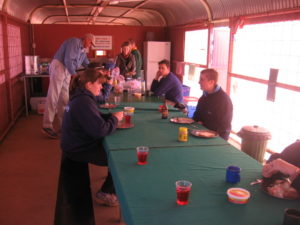
A communal dining area ….
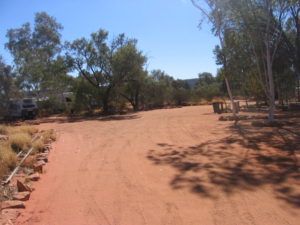
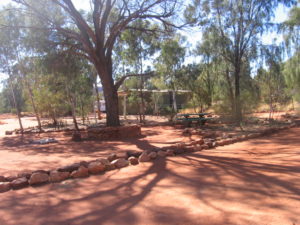
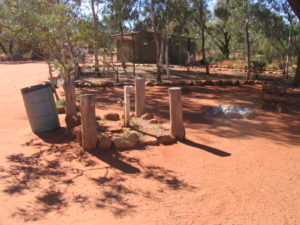
Roads and parking in the camping area …. the natural red earth road …..
______________________________________________________________
See the next post: NORTHERN TERRITORY TRIP in 2006: In Central Australia … The Olgas : Post 7
